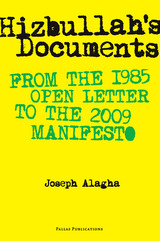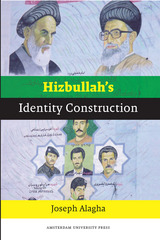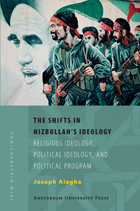
Despite the controversial reputation of Hizbullah in the West, and the significant role this powerful Islamist organization plays in Lebanese politics, there are few reliable, published English translations of the party’s primary documents. With this extensive work, Joseph Alagha seeks to remedy this problem and rectify the distortions and misrepresentations that have resulted from inaccurate translations.
Through privileged access to the party, Alagha was able to compile and meticulously translate a host of original primary documents, from the party’s 1985 Open Letter; through its eight clandestine conclaves from 1989 to 2009; to all of its election programs from 1992 to 2010, as well as all of the agreements, understandings, and pacts the party has ratified over the years; ending with the 2009 Political Manifesto. This firsthand portrait of Hizbullah’s metamorphosis, especially in the past decade, is complete with thorough footnotes, commentary, background information, chronology, and a detailed introductory chapter that maps the party’s transformation by analytically comparing the Open Letter with the 2009 Manifesto. This volume will be an invaluable companion for both scholars and policy makers.

As the dominant political force in Lebanon and one of the most powerful post-Islamist organizations in the world, Hizbullah is a source of great controversy and uncertainty in the West. Despite the significant attention paid to this group by the media, the details of Hizbullah’s evolution have frequently confounded politicians—and even scholars. In this important study, Joseph Alagha, a scholar with unprecedented access to the organization, exhaustively and objectively analyzes Hizbullah’s historical evolution and offers a revolutionary new perspective on the political phenomenon of the organization.

As the recent war in Lebanon demonstrated, an understanding of the Lebanese Shi‘ite militant group Hizbullah remains an important component of any attempt to solve the problems of the Middle East. The Shifts in Hizbullah’s Ideology provides an in-depth analysis of the group’s motivations, tracking the changes it has undergone since Hizbullah’s founding by Lebanese Shi‘ite clergy in 1978. Joseph Alagha demonstrates that Hizbullah, driven at its founding chiefly by religious concerns, in the latter half of the 1980s became a full-fledged social movement, with a structure and ideology aimed at social change. Further changes in the 1990s led to Hizbullah’s becoming a mainstream political party—but without surrendering its militarism or willingness to use violence to advance its ends.
In tracking these changes, The Shifts in Hizbullah’s Ideology covers such disparate topics as Hizbullah’s views of jihad, suicide and martyrdom, integration, pan-Islamism, anti-Zionism, and the relationship with Israel and the United States. It will be necessary reading for both scholars and policymakers.
READERS
Browse our collection.
PUBLISHERS
See BiblioVault's publisher services.
STUDENT SERVICES
Files for college accessibility offices.
UChicago Accessibility Resources
home | accessibility | search | about | contact us
BiblioVault ® 2001 - 2024
The University of Chicago Press









